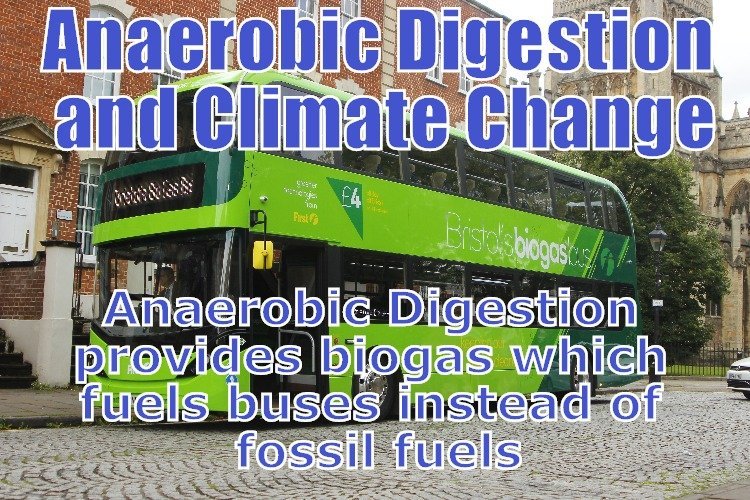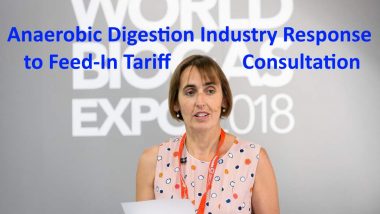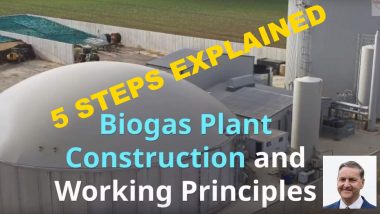Anaerobic digestion can play a major part in the fight against climate change, and the importance of the link between anaerobic digestion and climate change reduction is still not fully appreciated. So, read on and see whether you then agree that making biogas to reduce greenhouse gases, has enormous potential for climate change reduction.

Anaerobic digestion is the process that makes biogas and other useful products using micro-organisms in the absence of air.
In other words, making biogas helps reduce the greenhouse gas emissions which cause global warming, and severe weather events.
Anaerobic digestion has the ability to reduce global greenhouse gas emissions by 18-20% across the waste, agricultural, energy, and transport sectors.
The industry is uniquely positioned to help achieve emissions reduction and mitigate many of the impacts of climate change, through capturing organic wastes, producing renewable energy, and returning nutrients and organic content to the soil.
It does this through capturing organic wastes, producing renewable energy, and returning nutrients and organic content to the soil.
Anaerobic digestion can help to achieve the global Paris Agreement goals and many of the UN’s Sustainable Development Goals.
Notably, it does this around food supply; clean energy for power; heat and transport and waste management.
It can improve soil, air, and water quality.
In the UK, the government like many others, is under pressure to act on its climate change policies, from the Independent Committee on Climate Change.
The Independent Committee on Climate Change is highlighting the gap between the policies required to meet targets set under the Climate Change Act, and the policies currently in place.
With the right support, AD can help all governments to meet their climate goals, by reducing UK greenhouse gas emissions.
In the UK, the Anaerobic Digestion and Bioresources Association, has quantified the potential of anaerobic digestion and climate change reduction.
It has recently been reported that anaerobic digestion can reduce UK greenhouse gas emissions by 5%.
That is the equivalent to taking all heavy goods vehicles off the UK’s roads. via Biogas Show 2018
Now watch the video we made using the text on this page, as follows, but after watching, don't forget to return back here for the further citations below:
Text is based upon the ADBA Biogas Show page here.
US, UK, and Irish Citations which Verify that Anaerobic Digestion and Climate Change Reduction are Linked
CalRecycle funds anaerobic digestion projects, linking Anaerobic Digestion and Climate Change
The California Department of Recycling and Recovery has awarded more than $25 million to 10 projects to bolster organics recycling and rescue edible food for those in need. Three of the awards support anaerobic digestion projects.
“California has the opportunity to close the loop with organics by transforming the single largest part of our waste stream into a supply stream for local businesses,” said CalRecycle Director Scott Smithline. “These California Climate Investments not only recycle California-generated waste into new and valuable products, they also create jobs and reduce greenhouse gas emissions that contribute to climate change.” Anaerobic digestion and climate change via CalRecycle funds
“Tide May Be Turning” For UK Anaerobic Digestion Industry
Anaerobic digestion and climate change: … whilst the current RHI scheme is due to close by 2021, the urgent need for more biomethane is resulting in calls from the Committee on Climate Change for the government to put in place a replacement before the end of this year. via Tide May Be Turning
CCC report urges Government action on climate change
The Commission on Climate Change have issued a report to the UK Government, detailing the achievements of sustainable policy while highlighting areas of industry that are falling behind.
According to the report, a 40% drop in emissions has been recorded since 1990 – complemented by a boom in economic growth. 75% of emissions reductions has been attributed to the efforts of the power sector, with the report recognising the failure of other industries such as transport and housing.
In their response to the report, the Anaerobic Digestion and Bioresources Association states: “the CCC’s excellent report singles out two notable successes, the decarbonisation of electricity generation and emissions reductions from the waste sector, both of which the UK’s anaerobic digestion (AD) industry has contributed to. More importantly, AD can also make a significant contribution to decarbonising the sectors that the CCC identify as lagging a long way behind in terms of emissions reduction: heat, transport, and agriculture.”
One of the report’s most alarming accusations is that if the Government doesn’t efficiently invest in sustainability then it will fall short of its 2025 and 2030 targets which are legally binding. The link between anaerobic digestion and climate change, via CCC report urges Government action on climate change
Anaerobic digestion is the process where plant and animal material is converted into useful products by micro-organisms in the absence of air, via Ecotricity Becomes First “Vegan Electricity” Company
Farming forecast: turning waste into energy
Biomethane will in coming years be generated at hundreds of sites around the country (Ireland) through the use of anaerobic digesters (ADs) and injected into the national gas grid.
Ireland is uniquely well-positioned to exploit this green gas. Farmers and the food industry in particular are set to play a key role in turning energy from waste, such as pig slurry, into heating.
Anaerobic digestion uses microbes to break down biodegradable material in the absence of oxygen. It generates biogas, which is combusted to generate electricity and heat, or can be processed into renewable natural gas (biomethane) and transportation fuels.
Currently, there are fewer than a dozen anaerobic digesters in Ireland, but Ian Kilgannon, innovation and business development manager with Gas Networks Ireland (GNI), says it is a proven technology and a low-risk investment.
Ireland is about to benefit from coming late to the game.
… In State policy terms, biomethane is about to be recognised for its role in decarbonising gas and addressing climate change challenges, and is expected to benefit from a State subsidy backed by major capital investment under the National Development Plan.
Anaerobic digestion energy needs fresh look
As fossil fuel prices rocket, the opportunity for producing energy on farms by anaerobic digestion (AD) is something most growers should be investigating, says Jeremy Tomkinson of the National Non-Food Crops Centre.
He was launching a new computer calculator at Cereals 2008 to help farmers decide whether the idea is feasible, given their own circumstances, and if so to seek the not inconsiderable funding required.
“We can no longer regard anything that contains energy as waste,” said Dr Tomkinson. “We have never been in a better position to take full advantage of the carbon savings offered by renewable fuels and materials.”
There were many policy drivers and incentives to encourage such developments, but much confusion, he said.
NFU non-food crop specialist Jonathan Scurlock said that, until about 18 months ago, he had been “quite sceptical” about the potential for AD on farms. But in the quickly changing energy and environmental climate, his opinion had changed.
Under new (UK) NVZ rules, many livestock farmers were likely to have to spend large sums simply to store slurry for extended periods.
“If you are going have to do that, why not go the whole hog and spend £750,000 on something that’s going to earn you money for years?” said Dr Scurlock. via Anaerobic digestion energy needs fresh look







Thanks for the ideas about how anaerobic digestion can help reduce climate change, I’ve shared using your blog. Another thing I would like you to talk about is Sir David Attenborough’s documentary. It’s an “urgent” new documentary about climate change which was put-out over Easter on BBC One.
Hola me interesa mucho el tema desearía preguntar dónde adquirir los planos de construcción de un biodigestor para implementarlo en mi finca me parece un tema del que todo el mundo debería estar al corriente. Grasias
Jesús you said: “Hello, I am very interested in the subject I would like to ask where to acquire the construction plans of a biodigester to implement it on my farm. It seems to me a subject that everyone should be aware of.”
The answer is surely that you should look for a local biogas plant expert designer in your local area. We are in the UK.